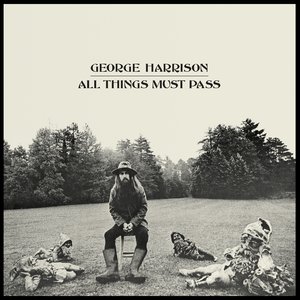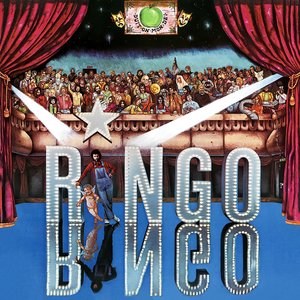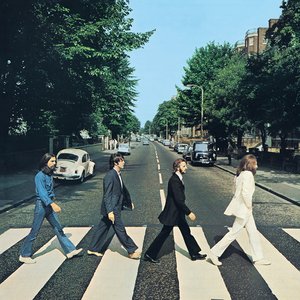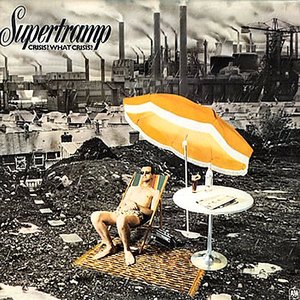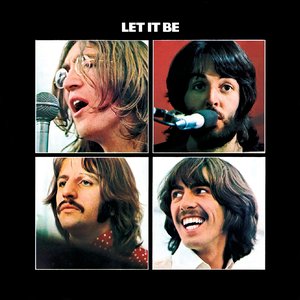Wiki
-
Length
3:39
"Give Me Love (Give Me Peace on Earth)" is a song by George Harrison and is the lead track on his 1973 album Living in the Material World. The song was released as a single in May 1973, hitting number one in the U.S. Billboard Hot 100 at the end of June. Harrison's single replaced "My Love" by his former bandmate from The Beatles, Paul McCartney, at the top of the chart, and in turn was replaced at number one by "Will It Go Round in Circles" by Billy Preston, who played with Harrison and McCartney during the sessions for Let It Be in 1969.
Background, meaning & inspiration
In his lyrics, Harrison sings of his desire to be free of karma and the constant cycle of rebirth; he later described the song as "a prayer and personal statement between me, the Lord, and whoever likes it".
As with most of the songs on his Living in the Material World album, George Harrison wrote "Give Me Love (Give Me Peace on Earth)" over 1971–72.
During this period, he dedicated himself to assisting refugees of the Bangladesh Liberation War, by staging two all-star benefit concerts in New York and preparing a live album and concert film for release. In addition, much of his time was spent occupied with the business and legal problems afflicting the humanitarian aid project. Author Andrew Grant Jackson writes that Harrison's frustration with this last issue resulted in a sombre quality pervading much of Material World, yet he "pushed his disillusionment aside for the lead single ".
The same period coincided with the height of Harrison's devotion to Hindu spirituality. As with his religious-themed 1970–71 hit, "My Sweet Lord", and his subsequent singles "What Is Life" and "Bangla Desh", Harrison wrote "Give Me Love" very quickly. Author Alan Clayson describes it as having "flowed from George with an ease as devoid of ante-start agonies as a Yoko Ono 'think piece'". In his autobiography, I, Me, Mine, Harrison recalls of the writing process:
”Sometimes you open your mouth and you don't know what you are going to say, and whatever comes out is the starting point. If that happens and you are lucky, it can usually be turned into a song. This song is a prayer and personal statement between me, the Lord, and whoever likes it.”
Lyrics & Composition
In his lyrics, Harrison expresses his vision for life in the physical world. Following the opening instrumental passage, the song begins with a chorus in which he first pleads for a life devoid of the karmic burden of reincarnation (rebirth):
"Give me love, give me love, give me peace on earth / Give me light, give me life, keep me free from birth."
These lyrics bear a simple, universal message, one that, in the context of the time, related as much to the communal "peace and love" idealism of the 1960s as it did Harrison's personal spiritual quest.
Harrison also asks for divine assistance to "cope with this heavy load", while his stated attempt to "touch and reach you with heart and soul" recalls the same plea for a direct relationship with his deity that he expresses in "My Sweet Lord". These two lines, which complete the chorus, imply a deficiency or unfulfilment on the singer's part. According to author Ian Inglis, they serve as "an acknowledgment of the trials and tribulations he was facing in a more earthly setting" in the aftermath to the Concert for Bangladesh.
During the two bridge sections, Harrison incorporates the sacred term "Om" within his extended phrase "Oh … my Lord". Author Joshua Greene describes this as an example of a theme found in several songs on Material World, whereby Harrison "distilled" spiritual concepts into phrases "so elegant they resembled Vedic sutras: short codes that contain volumes of meaning". The use of the word "Om" was a further comment from Harrison on the universality of faith, after his switching in "My Sweet Lord" from "hallelujah" refrains to the Hare Krishna mantra. Referring to the second half of the bridges in "Give Me Love", Inglis views the drawn-out "Please …" as "highly symbolic", given the "unresolved conflict" that appears to be at the heart of the composition.
More at Wikipedia:
https://en.m.wikipedia.org/wiki/Give_Me_Love_(Give_Me_Peace_on_Earth)
Track descriptions on Last.fm are editable by everyone. Feel free to contribute!
All user-contributed text on this page is available under the Creative Commons Attribution-ShareAlike License; additional terms may apply.


